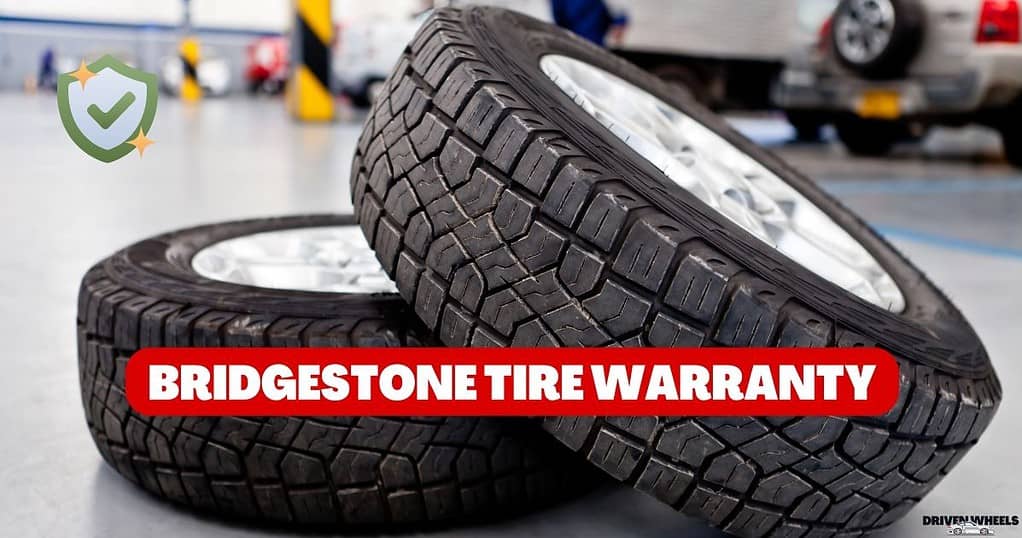Bridgestone Tire Warranty: What You Need to Know
Bridgestone is one of the world’s largest tire manufacturers, and they are known for producing high-quality tires for a wide range of vehicles. One of the key selling points of Bridgestone tires is their warranty program, which offers customers peace of mind and protection against defects and other issues.

The Bridgestone Tire Warranty covers a variety of different issues that may arise with your tires, including defects in materials or workmanship, premature wear, and damage caused by road hazards. The length and coverage of the warranty varies depending on the specific tire model and other factors. Still, in general, Bridgestone is committed to standing behind their products and ensuring that customers are satisfied with their purchase.
What is Bridgestone Tire Warranty?
Bridgestone is a well-known tire manufacturer that offers a warranty on their tires. The Bridgestone Tire Warranty is a promise to customers that the company will replace or repair any tire that is deemed defective due to workmanship or materials.
The warranty is valid for a specific period of time and applies to tires that have been used under normal driving conditions.
The Bridgestone Tire Warranty covers various types of tires, including passenger, light truck, and commercial tires. The warranty also covers different types of damage, such as punctures, cuts, and impact breaks.
However, the warranty does not cover damage caused by improper use, such as overloading or using the tires in off-road conditions.
Customers who purchase Bridgestone tires can register their tires online to activate the warranty. The registration process is simple and requires the customer to provide basic information about their vehicle and the tires they purchased.
Once the registration is complete, the customer will receive a warranty certificate that outlines the terms and conditions of the warranty.

Coverage and Limitations
The Bridgestone Tire Warranty covers defects in materials and workmanship for a specified period of time, depending on the type of tire and its intended use. The warranty applies to the original purchaser of the tire and is non-transferable.
Under the warranty, Bridgestone will replace or repair any tire that is deemed defective due to materials or workmanship. This includes tires that experience irregular wear, blowouts, or other issues that are not the result of misuse or neglect.
However, there are limitations to the warranty coverage. For example, the warranty does not cover damage caused by road hazards, such as potholes or debris on the road. It also does not cover damage caused by improper installation, overloading, or other forms of misuse.
If a tire is found to be defective, the owner must bring it to an authorized Bridgestone dealer for inspection and replacement. The dealer will determine whether the tire is covered under the warranty and will provide a replacement or repair as necessary.
It’s important to note that the warranty does not provide coverage for incidental or consequential damages, such as the cost of mounting and balancing the replacement tire or the cost of towing.
Overall, the Bridgestone Tire Warranty provides valuable coverage for defects in materials and workmanship. Still, it’s important to understand the limitations of the coverage and to take proper care of your tires to avoid damage that is not covered under the warranty.

How to Make a Claim
If you’ve encountered an issue with your Bridgestone tires and need to make a claim, the process is straightforward. Here’s what you need to do:
- First, locate your original purchase receipt and any documentation related to your tire warranty.
- Contact the Bridgestone customer service team by phone or email to start your claim.
- Provide the customer service representative with your tire’s model number, size, and purchase date, as well as a description of the issue you’re experiencing.
- You may need to provide photos or other documentation to support your claim.
- The customer service representative will guide you through the rest of the process, which may include sending your tires to a Bridgestone dealer for inspection or repair.
It’s important to note that Bridgestone’s tire warranty covers defects in materials and workmanship, but does not cover damage caused by road hazards, improper installation, or other factors outside of Bridgestone’s control. Be sure to read your warranty documentation carefully to understand the specific terms and conditions of your coverage.
If you have any questions or concerns about making a claim, don’t hesitate to reach out to Bridgestone’s customer service team for assistance.

Frequently Asked Questions
Here are some common questions about Bridgestone Tire Warranty:
What is covered under the Bridgestone Tire Warranty?
The Bridgestone Tire Warranty covers defects in materials and workmanship for the life of the original usable tread or for 6 years from the date of purchase, whichever comes first. It also covers some types of road hazards such as punctures and cuts that cannot be repaired. The warranty does not cover damage from accidents, misuse, or improper maintenance.
How do I make a warranty claim?
If you believe your Bridgestone tires are covered under warranty, take them to an authorized Bridgestone dealer. They will inspect the tires and determine if they are covered under warranty. If they are, the dealer will replace the tires or provide a prorated credit towards a new set of tires.
What is the prorated credit for eligible tires?
The prorated credit is based on the remaining tread depth of the eligible tires. The dealer will calculate the credit based on the original purchase price of the tires and the percentage of usable tread remaining. The credit can be applied towards the purchase of a new set of Bridgestone tires.
Can I transfer the Bridgestone Tire Warranty to a new owner?
Yes, the Bridgestone Tire Warranty can be transferred to a new owner if the tires are still within the warranty period. The new owner must provide proof of purchase and the original warranty certificate.
Do I need to register my Bridgestone tires for the warranty?
No, registration is not required for the Bridgestone Tire Warranty. However, it is recommended that you keep your original purchase receipt and warranty certificate in case you need to make a warranty claim in the future.
Conclusion
After reviewing Bridgestone’s tire warranty, it is clear that the company stands behind its products and is committed to providing customers with high-quality tires that are built to last. The warranty covers a range of common issues, including defects in materials and workmanship, road hazard damage, and premature wear.
One of the standout features of Bridgestone’s warranty is its mileage guarantee, which promises a certain number of miles of use before the tire needs to be replaced. This can provide peace of mind for drivers who put a lot of miles on their vehicles and want to ensure that their tires will last as long as possible.
Overall, Bridgestone’s tire warranty is a strong selling point for the company’s products. It provides customers with protection against a range of issues and demonstrates the company’s commitment to quality and customer satisfaction.
